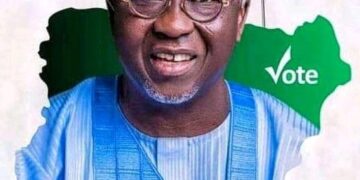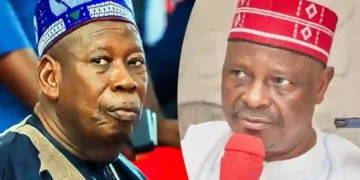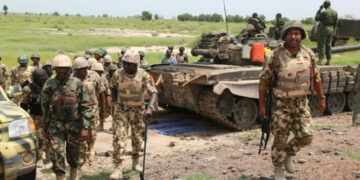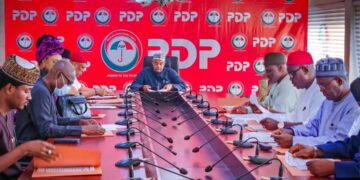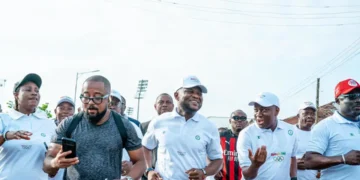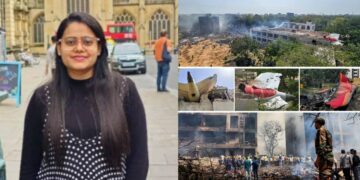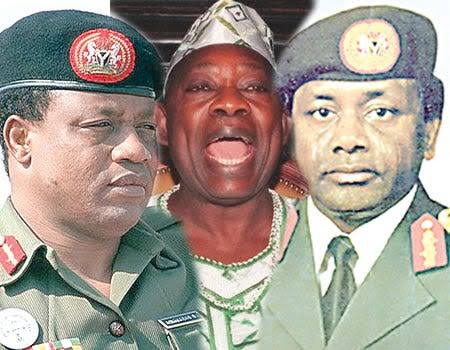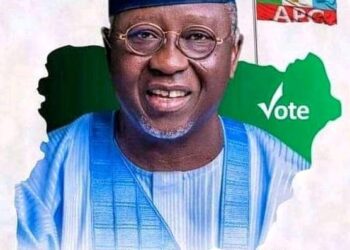OF JUNE 12, DEMOCRACY STRUGGLES, NATIONAL HONOURS, AND OKUN NATION
BY
BOLAJI AFOLABI
Penultimate week, President Bola Tinubu, in commemoration of this year’s “Democracy Day” conferred different categories of National Honours on about 100 prominent Nigerians; dead and living. Tinubu announced names of the awardees while addressing Nigerians at a joint session of the National Assembly; in one of the activities to mark the celebrations of the day, which has been included among national landmarks. The choice of the venue was symbolic, as the legislature remains the fulcrum of democracy. The awardees, drawn from the civil society, media, academia, business, and politics were identified as major players in the determined agitation for the restoration of the June 12, 1993 elections; recognition, declaration of Chief M.K.O Abiola as the winner, and president; as well as subsequent struggles for the enthronement of democracy.
Mrs. Kudirat Abiola, the late wife of Abiola, who was gruesomely murdered in Ikeja area of Lagos; late General Musa Yar’adua, (Rtd); Bagauda Kaltho, journalist who was mysteriously killed in Kaduna; Alfred Rewane, veteran politician and businessman murdered in Ikoyi, Lagos; Chima Ubani, of the Civil Liberties Organization, (CLO); and few others were given posthumous awards. Eminent Nigerians, still alive who emerged beneficiaries include Prof. Wole Soyinka; Rt. Hon. Prof. Julius Ihonvbere, Leader, House of Representatives; Governor Uba Sani of Kaduna state; Ms. Ayo Obe. Mr. Labaran Maku, former Information Minister; Senator Shehu Sani; Hon. Abdul Oroh, journalist and former parliamentarian, and other professionals made the list.
As expected, there were divided opinions about the novel decision to recognize patriots who fought for the birth of democratic governance in Nigeria. The gestures attracted commendation and criticisms; cheers and jeers; kudos and knocks. While many people saluted the government for her thoughtfulness, some others pop-pooh it. Few others wondered why names of other Nigerians who contributed to the democratic struggles were left out. Happily, a few days later, while commissioning some projects executed by Governor Uba Sani, Tinubu addressed the omissions by adding a few more names to the list of honourees. Tinubu’s immediate response attracted hearty reactions, and wholesale applause by people at the event including Sani; himself a recipient who in two years as the head of the “citadel of learning” state has endeared himself to the people through pragmatic leadership, inclusivity, equitable distribution of projects, and fair allocation of resources to all segments.
In August 1985, when General Ibrahim Babangida took over the reins of power from General Muhammadu Buhari, there was spontaneous jubilation by the people. Disenchanted with the coercive administrative style of Buhari, Nigerians were excited, and hopeful there will be measurable changes by the new regime. Somehow, Babangida, who was the Chief of Army Staff prior to emerging as Nigeria’s 5th post-civil war military head of state started on a high. He took deliberate actions to distance the new administration from Buhari’s government. He positioned himself, and the government as willing, and ready to meet the yearnings of the citizenry. To portray signs of readiness, and commitment to good governance, he assembled some of Nigeria’s best human resources to work with him in various positions and offices. To underscore his commitment to democracy, he came up with an ingenious leadership model where civilians were appointed as deputies to military governors in all the states of the federation.
However, a few years down the line, “tory change.” The honeymoon was literally over as things began to manifest, in lightening speed. Nigerians were regularly beseeched with policy sourmersaults, perennial shifting of the political calendar, and many other selfish decisions. In few cases, programmes that had prospects of impacting on the nation’s development were sadly, chiseled, plundered under vacuous reasons as they were deployed as conduits for the slushing of the economy. Many people described the period as one where there was mindless, vicious, and rudderless acquisition by the privileged few. Nigerians witnessed capricious malfeasance, and wasteful disfiguring of our commonwealth in many ways such that the economy was stripped and savaged. To few discerning minds, the subtle, unconvincing, and pretentious tendencies of IBB, which earned him the sobriquet, “Maradonna” came to the fore when he added “President” to his title as Nigeria’s leader.
With incessant rigmarole, and sneaky non-commitment to the return of democracy, IBB dribbled everybody. The elites, politicians, technocrats, and many people were confounded by his theatrics. Humongous public funds were wasted on various engagements, whose outcomes were premeditated and robbed in deceptions. How can one forget the political interactions that were held across the country? How about the lifting on the ban on politics which led to the formation of many parties including the Peoples Front; Peoples Solidarity Party; and others. However, the media, civil society, and few other groups and personalities tired of the military junta’s intentions to frustrate the return to democracy, were very vocal, resolute, and dynamic in calling them out.
Within spans and space, the deluge of criticisms against the military grew. Sensing the dwindling popularity, and evaporating acceptability of his government, IBB, proscribed all the political parties and formed the Social Democratic Party, (SDP), and National Republican Convention, (NRC). With the growing rate of systemic impunity, unbridled insensitivity, and crass arrogance that characterized military rulership, Nigerians were upbeat with the opportunities for regime change; through the ballot. On election day, many people trooped out in huge numbers across the country to cast their votes for either Abiola, or Alhaji Bashir Tofa, candidates of the SDP, and NRC respectively. Sadly, as results were trickling in, with Abiola’s victory assured, the elections were suspended, and later annulled by the military. The National Electoral Commission, (NEC), under late Prof. Humphrey Nwosu cited that the free and fairest elections were “marred by irregularities” as the reason for the spurious actions orchestrated by the military.
Just as there were sighs and hisses among the people, the annulment elicited global umbrage. Nigeria’s image as the giant of Africa was soiled and sullied. Heavily, and roundly vilified, it was described as immoral, illogical, and self-serving. Amid growing protests, and general condemnation, IBB had to “step aside.” Adding a new lexicon to Nigeria’s evolution. Though Chief Ernest Shonekan was named Head of Interim Government but he lasted barely 4 months as General Sani Abacha took over as Nigeria’s 6th Head of State; post-civil war. Under his watch, Nigeria witnessed brutal suppression; pervasive human rights violations; and other anti-people practices.
Serial harassment and intimidation by the IBB, and Abacha juntas led to the killings, incarceration, and dehumanization of many people which sparked widespread protests, civil unrest, sustained agitation, and prolonged struggle for democracy. The media, pro-democracy groups, and many personalities played crucial roles in sustaining the advocacy to end military rulership, and pursue the restoration of democratic governance. Abacha allegedly coerced the 5 registered political parties to endorse his presidential ambition. Late Chief Bola Ige, former Justice Minister described it as “fingers of a leprous hand.” This was effectively challenged with more protests across the country, and around the world. Nigeria suffered global neglect, and treated as a pariah nation, Abacha, ruthlessly dug in by expanding the search for identified “renegades” with plans to unleash harm, and assaults. Military officers became targets. Many communities, tribes, and ethnic groups suffered collateral damages.
The Yoruba speaking people of Kogi state, better known as Okuns was one of such ethnic sub-regions. Domiciled, majorly in 5 LGAs; Kabba-Bunu, Ijumu, Mopa-Muro, Yagba East, and Yagba West, the Okuns consists of about 60 percent of Kogi West Senatorial District. Recognized as the intellectual hub of the “confluence state” with over 500 academic professors, 5 Senior Advocates, and accomplished technocrats in various professions, the people have always played vital roles at every point of Nigeria’s sociopolitical and economic odyssey. Some indigenes contributed their respective quotas towards the exit of the military, and return of participatory governance. Some Okun indigenes who were senior military officers, were severely harassed, hounded, and incarcerated by Abacha for taking principled and progressive positions against prolonged military rulership. Others in varied professions distinguished themselves as heroes of the over 10 struggles. Happily, their sweats and tears have not gone unnoticed, as they have been recognized by Nigeria.
Prof. Olatunji Dare, a prodigious academic, iconic columnist, and conscionable activist was bestowed with the Commander of the Order of the Niger, (CON) by Tinubu. Through his insightful writings, he displayed unbridled courage, and unwavering boldness by speaking truth to power during the period under review. As a public intellectual, he contributed immensely in shaping opinions towards ensuring the exit of the military from governance. His book, “Diary of a Debacle: Tracking Nigeria’s Failed Democratic Transition, 1986-1994,” is an outstanding masterpiece for research, education, and information. The renowned communication scholar, who has been a consistent columnist for about four decades, declined to join The Guardian newspapers delegation to apologize to Abacha; to avoid a shut down. A highly principled Dare resigned, and subsequently left Nigeria for the USA in 1996 after suffering serial threats and humiliation by the military junta.
The history of resolute opposition against military rulership will not be complete without the mention of The News, and Tempo publications who pioneered “guerilla journalism” in Nigeria. Mr. Dapo Olorunyomi, variously called “Dapsy” and “Uncle Dapsy” by his friends, associates, and mentees respectively, stood out as a colossus. The multiple-award winning journalist, publisher, and author was one of the “strategic generals” who sustained the war against military dictatorship. Drawing from his antecedents of moral upbringing, political engagement, and social activism, his focused advocacy and uncommon comportment amid adversity inspired many people. Abacha, disturbed about the depth of Olorunyomi’s advocacy against his government, declared him wanted. Thereafter, he reluctantly relocated to the USA in 1995, to evade the government’s violent persecution of pro-democracy groups. Indeed, the Commander of the Order of the Niger, (OON) given to him is well-deserved, and long overdue.
True, the national honours on Dare and Olorunyomi represent the fitting endorsement of their respective contributions to democracy, and good governance. More importantly, it has further confirmed the status of the Okun-Yoruba as a fearless, selfless, conscientious, and forthright people whose commitment to national development is unequivocal. Going forward, as one commends Tinubu for the initiative, it is imperative that more distinguished Okuns; in the academia, military, and a few other disciplines who also made immeasurable contributions to democratic governance be considered. The gesture should also be extended to other Nigerians.
* BOLAJI AFOLABI, a Development Communications specialist was with the Office of Public Affairs, The Presidency.


